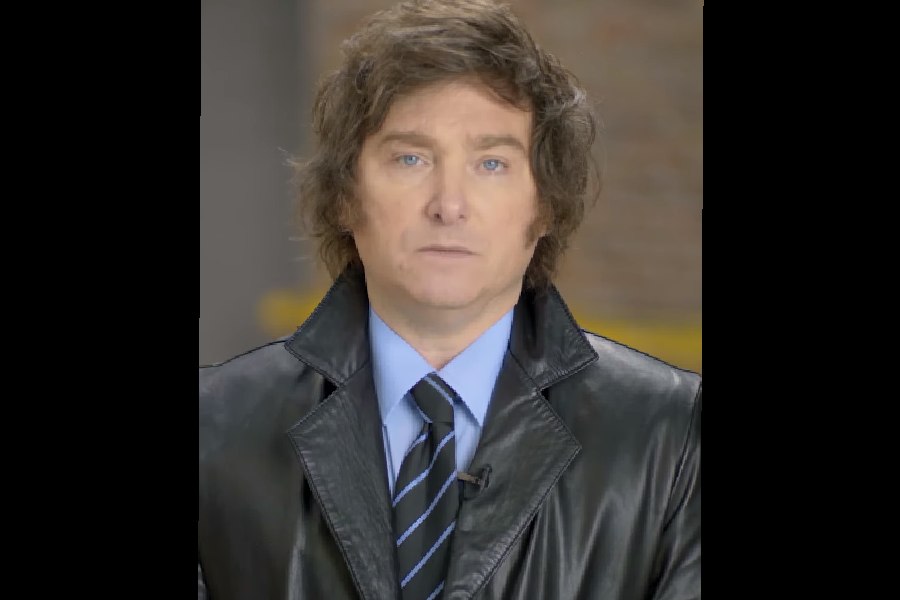A far-Right libertarian candidate won Argentina’s open presidential primary election on Sunday, a surprising showing for a politician who wants to adopt the US dollar as Argentina’s official currency and embraces comparisons to Donald Trump.
Javier Milei, 52, a congressman, economist and former television pundit, secured 30 per cent of the vote with 96 per cent of the ballots counted, making him the front-runner for the presidency in the fall general election.
Polls had suggested that Milei’s support was at about 20 per cent, and political analysts had predicted that his radical policy proposals — including abolishing the country’s central bank — would prevent him from attracting many more voters.
But the vote on Sunday made clear that Milei now has a clear shot at leading Argentina, a South American nation of 46 million with some of the world’s largest reserves of oil, gas and lithium.
“I think these results are surprising even to him,” said Pablo Touzon, an Argentine political consultant. “Up until now, he was a protest candidate.”
Argentina’s general election in October, which could go to a November runoff, will now become a new test of the strength of the far-Right around the world. Although hard-Right forces have gained new influence in several powerful nations in recent years, including the US, Germany, France, Italy, Sweden and Finland, they have also suffered some defeats, including in Spain and Brazil.
Milei has pitched himself as the radical change that the collapsing Argentine economy needs, and he could be a shock to the system if elected. Besides his ideas about the currency and the central bank, he has proposed drastically lowering taxes and cutting public spending, including by charging people to use the public health care system; closing or privatising all state-owned enterprises; and eliminating the health, education and environment ministries.
New York Times News Service











